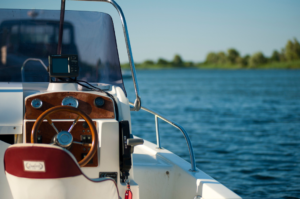In Florida, locals and tourists commonly enjoy being out in the water whether that is for pleasure, business, or travel. With a big chunk of locals owning or operating a boat in South Florida, boating accidents are more common. According to the Florida Fish and Wildlife Conservation Commission statistics, Monroe County had the highest number of accidents in 2018, with Miami-Dade County coming in second place. The primary cause of these accidents is a lack of proper lookout, and the most common type of accident is a collision with another vessel. To avoid possible hazards, it is important to always practice boat safety before heading out into open waters.
Federal and State Boat Requirements

Before hitting the water, there are many federal and state requirements that all owners/operators must have knowledge of and comply with. Even if you are just a passenger, it is always a good idea to know about these requirements for your safety.
Here are a few requirements that everyone must comply with:
- The boat must be registered, and the registration must be displayed properly.
- There must be at least ONE personal flotation device in good condition for each passenger. If there are children present, make sure the flotation device fits each child properly.
- Keep at least one fire extinguisher onboard.
- Navigation lights must be present and operational.
- The deck must be free of hazards, and the bilge must be clean.
- A copy of navigational rules and a sound-producing device or bell must be onboard.
- The vessel must be in good overall condition.
- While it is not required, it is always a good idea to have a first aid kit handy.
In order to operate a vessel, those who are looking to operate or own a boat are required by the State of Florida, to obtain a Boating Safety Education Identification Card. In a 2018 survey of South Florida boaters, only 38% had completed and received a boating education ID and 59% reported having no boating education whatsoever. For more information on Boating safety courses, visit the Florida Fish and Wildlife Conservation Commission.
6 Boat Safety Tips
Once you have obtained your identification card and comply with all federal and state requirements, it is time to head out into the water. As you are gearing up for a relaxing day out, we want to help keep you and your family safe.
Follow these 6 boat safety tips for a fun and worry-free day at sea:
- Carry safety equipment on board. – Be prepared for any potential hazard by having the right materials on board. This includes U.S. Coast Guard approved life jackets for everyone on board, a complete first-aid kit, a tool kit, horn or whistle, a fire extinguisher, an extra dock line, and a throwable flotation device.
- Protect against propeller strikes. – Always make sure all passengers are accounted for before starting the engine and wear an emergency cut-off switch at all times. When passengers are in the water, ask one person to propeller-watch.
- Never boat under the influence. – According to the U.S. Coast Guard, alcohol plays a role in about a third of all boating fatalities. The sun, wind, and boat vibration can accelerate impairment. A boat operator with a Blood Alcohol Concentration of .10 or higher is likely to be involved in a boating accident. Be responsible and carry food and non-alcoholic drinks.
- Make a float plan. – A float plan is a document you leave with someone onshore with a description of your boat, equipment, itinerary and passengers. In an emergency, your float plan will be able to help guide search and rescue teams.
- Prevent carbon monoxide poisoning. – Install and maintain carbon monoxide alarms in your boat. The symptoms of this odorless gas are similar to seasickness, but if you suspect carbon monoxide poisoning, seek fresh air and medical attention.
- Get a free vessel safety check. – The U.S. Coast Guard will come to you at your convenience to conduct a complimentary assessment. This assessment will make sure your vessel is functioning properly and has the necessary equipment needed before heading to sea. For more information visit http://uscgboating.org/.
Who was Liable in a Boating Accident?
When it comes to boating accidents, liability depends on a multitude of factors including where the accident happened, how it occurred, and who is operating the vessel. Wherever it occurred, boating accidents and boating negligence cases are generally governed by maritime law. To assist in pursuing all liable parties, we call upon a broad range of experts to assist us with the investigation, accident reconstruction, and witness testimonies.
If you or someone you know has been involved in a boating accident, we recommend speaking to an experienced attorney. At Panter, Panter & Sampedro, we pride ourselves on assisting Florida’s families. Contact us today for a free consultation either by web at PanterLaw.com or call us at (305) 662-6178. Se habla español.
References:
Safety Tips: Boats & Personal Watercrafts (n.d.) Retrieved February 18, 2020, from https://miamidade.gov/global/fire/safety-boats.page
Boating Emergencies (n.d.) Retrieved February 19, 2020, from https://statefarm.com/simple-insights/auto-and-vehicles/boating-emergencies-8-safety-tips